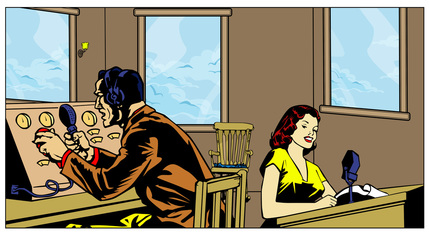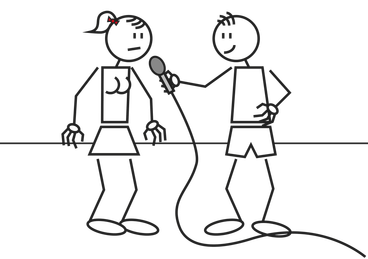|
Tips on Promoting Your Radio Show Warning: This is a rather large blog. You may need some liquid refreshment to make it to the end! In this blog I'll cover: How to target your live radio show to the correct listeners. What to do if you broadcast at a community radio station that has mixed programming and no listeners. Using the listen again feature to attract live listeners Why I recommend Mixcloud to all community radio presenters and podcasters. This blog post has a slight crossover with the "How to Be a Radio Presenter" article. If you haven't read that, then you might want to start with that first. Be warned though, that's also a long read. I'll also mention station formats once more as it's relevant to this post. Part One This is related to radio shows that broadcast live. Part Two This is related to presenters that have no live listeners. Everything in the top half of this blog post will also be related to using your radio shows as 'listen again.' The Two Main Ways to Attract Listeners to Your Radio Show Approach number one is for radio presenters who present live. Strategy number two is for radio DJs who don't have a live audience. In this case, we'll be using the 'listen again' function to attract an audience. Let's start with the live audience first. Attracting Listeners to Your Live Radio Show What is the mission statement of your radio station? If you're broadcasting live, then you'll need to know the demographics of your radio station. In other words, you'll want to know.... Who Are Your Audience? We need to have an idea about who's listening to our station. When we know this, we can target our shows to that audience. Focusing our shows towards a specific audience means we can connect with them better. It also means they'll find us easier. More on this in a moment. Targeting Your Audience Questions You don’t have to remember this information by heart. I just want you to consider these issues when planning a show. How Old Are Your Target Audience? 15-24 25-34 35-44 45-54 65 plus Why Do We Want to Know This? Well, there’s no point trying to do a trans based techno show at a station that only serves elderly listeners. You may love your show, but the audience won't. Why? Because you're not playing the music that they're 'expecting' to hear. In other words, if they dislike your show, they won't listen. I know this sounds incredibly obvious, but guess what? Many new community presenters turn up at a station and then ignore the station's format. Doing this means they end up broadcasting to no one. Broadcasting Tip Broadcast to your 'niche.' If your audience "expects" a gold format etc., then your show needs to provide that same format. The Number One Radio Rule to Understand Join a station that plays music you like. Even if you have to travel further, in the long run, it's better for you and your show. Wait! My Radio Station Doesn't Have a Format O_o We'll get to that in a moment. By the way, here’s a great page from the New York Radio Guide. It describes the different formats in radio. Check it out some time. It’s very interesting. So, Who Are Your Audience? How do you find this information out? Simple. Ask your station manager or the programme controller. Broadcasting Tip Always ask your station manager the demographics of your audience. Once you know this, then the next question is... Where Are Your Audience Located? In a city or a town? In the countryside? In a region? In a local neighbourhood? Or... Are they an online community radio station that broadcasts to a small target area? For example, K2K radio broadcasts to Kilburn and Kensal in the north London area. Croydon Radio (until this year) used to transmit to the local population of Croydon in south London. Does your station broadcast to the whole world? If it does, then who are they targeting? A rock audience, a pop audience, a jazz audience etc. Why Is Locality Important? A locality gives you a reference point for your material. An audience located in rural Wales won't be interested in your associations with Watford. This sounds simple, but you'd be surprised how many new presenters ignore this fact. Local references also help you connect your station to your audience. You don't have to make every reference local, but you have to be aware if you're referencing items that have no connection to your audience. Why It's Good to Know Your Target Audience Knowing your target audience means you can structure your radio show content better. A joke about jazz music theory may work for a jazz-based audience, but it’ll fall flat for listeners who like rock and metal. However, a joke about jazz being lame, boring, nerdy bearded music, will work better on that same rock audience. Breaking Your Listeners Down Consider location, race, age, sex, interest, music, and lifestyle, etc. Points Relevant for Listen Again Podcasts What's the average age of the audience you want to target? What music does your audience like? Be specific. Is it rock from the 1960s to the 90s or is it modern day metal? Consider Your Audience's Gender Is your show predominately male or female in style? If it is gender biased, should you change that? Are you excluding female listeners by being too 'blokey?' Are you excluding male audiences by being too 'girly?' Is your music selection also gender biased? Will this bias exclude some listeners from tuning in? There's no correct answer here; however, these are points worth considering. The best radio DJs incorporate everyone. Get Specific About Your Radio Show I get new radio presenters to ask themselves a question: "What type of radio show do they want to do?" Then I tell them to get specific. Don’t say that you’re going to do a “rock show,” say that you’re going to do a rock show which targets a particular audience. Let's use ROCK as an example :) If you’re going to make a rock show, then make a rock show with a particular slant. A comedy rock show will be easier to find than a generic rock show. There are thousands of generic rock shows out there, but a rock show that only plays music from the 70s to the 2000s will bring the competition down a bit. A rock show that plays music from the 70s to 2000s AND also has comedy will be easier to find than a generic rock show. Broadcasting Tip If you have a plan to attract a certain type of listener, then listeners who are looking for a show like yours will find you easier. Question If your rock show plays all kinds of rock music, then what are you going to do differently to make your radio show stand out? You need to think about these things before you just jump in and start broadcasting. Questions to Ask When Targeting an Audience Does your show have a unique personality? What's different about your radio show compared to the other radio DJs? Will your radio show connect with your audience? Why will your radio show fit the radio station you're approaching? Will your show take your radio station somewhere new? And if it does, how will it do that? What Type of Show Will You Do? A music show. A discussion show. A specialist music or talk show. A political show. A current affairs show. A comedy show. An educational show. An advice show etc. Elements to Consider for Your Radio Show You can: Focus on specialised music for your radio show. Concentrate on live events and gigs. Use on and off-site interviews to add another dimension to your radio show. Use a mixture of all three above. Host a local politics show. One radio presenter at Croydon Radio (before it closed down) did very well with this local politics approach. Her show was different to everyone else. Apart from her, no one else had any interest in the local politicians. As a result of being in this niche, she got a lot of live listeners. She also got a lot of 'listen again' plays via her podcast. The local newspaper then became interested in her show. Why? Because she was the only one interviewing the local Councillors and MP's. Then the local newspaper got involved. This gave her show even more exposure. All of this experience meant she was crafting herself a very impressive broadcasting CV and demo tape. (I have to say I was very impressed!) One Important Point to Note About This She knew her local politics inside out. In other words, she researched her topics extremely well. She knew how to interview, and she knew how to panel a mixing desk. You can have the best content in the world, but if you can't operate a mixing desk, then you'll easily destroy your show. If you want to learn how to use the mixing desk, then click here. You could also host a topical debate show. At a community radio station though, this can be tricky due to limited equipment. However, it's very achievable with live studio guests. Part Two: Listen Again Question What if my radio station doesn't have a format? Answer In this case, we need to work backwards and use the "listen again" function instead. Radio Stations with Mixed Programming While some of you will present at a station that has a distinct demographic (i.e. a hospital radio station, a local FM/AM station, etc.), most of you will probably be presenting on a local internet station. Community Radio Stations in the UK Nowadays, many community radio stations in the UK broadcast to local 'areas' as a service. In other words, they represent the local area first. Community Stations That Provide a Local Service These types of community radio stations are set up to provide a service first and foremost. They don't have a music format or a demographic to adhere to. They offer free or cheap airtime to anyone within the local area. The local community is free to make any radio show they want. While this is very admirable, it often results in terrible 'live' listening figures due to the unstructured nature. For example, the radio station will begin with a rock show; then it'll move onto a poetry show for vegans, and finally, it will end with a Lithuanian jazz-rabbit show for Latvian morris dancers. And on and on this goes. If you're presenting at one of these stations, then you'll know what I mean. "It's Twisting My Melon Man" Because these community radio stations have no structured music 'programming', their output is all over the place. This approach confuses the listeners. They have no idea what the station or the schedule is about. Even worse, these stations don't even group their broadcast days into categories. It would be simple just to make Monday's the rock day, Tuesday's the jazz day, Wednesday's the vegan poetry day etc. At least the listeners would know when to tune in. Anyway, I've digressed and will cease this rant now lol. Let's move on! It's Not All Doom and Gloom for Your Radio Show While this mixed programming approach is not ideal for attracting 'live' listeners to the station, it’s not that bad when it comes to creating your show. These format free stations mean you can create whatever radio show you want to. And this can be incredibly liberating. The Good News About Stations With Mixed Programming If your station is like this, then you need to consider the audience perspective slightly differently. In this case, we make the show for ourselves first. Then we have to find our own audience online. Again, it comes back to targeting. You must know who you're making the show for. Don't make a self-indulged radio show only for yourself. Have an audience in mind. Use the Community Station to Record Your Show The Good News You can use your community radio station as a place to record high-quality radio shows/podcasts. Because your show will be recorded in a real radio studio, it will 'probably' sound much better than a home recording. This is important. Too many shows have poor audio quality. Poor audio quality makes for an unenjoyable listening experience. Master the Mixing Desk By the way, this means you have to master the mixing desk. You can ruin a great show by operating the desk badly. I have two, free video tutorials on the mixing desk. To watch them, just pop over to my four-step "How to Be a Radio Presenter" course. Meanwhile..... You may only be broadcasting to three people live; however, your radio show will still have a live feel. It means your 'listen again' recording will also have that 'live feel.' Edited shows/podcasts lose this vibe. Recording Your Radio Show As Live One of my students broadcasts a radio show from his wardrobe. He always records his shows 'as live', and that includes leaving in mistakes. You can read the blog here. Make Use of All the Incoming Lines When using the station to record your radio shows, you can also have guests contribute through telephone lines, Skype etc. Make use of these incoming lines. The Pros of a Mixed Programming Radio Station While your show won’t target your ‘natural’ station’s audience (because your radio station lets anyone do what they want = no one is listening), you can still record a high-quality live, show. Once you've recorded your show, your next step is to upload it to your "Mixcloud" etc. account. Then you can start to promote your show via social media. You can also embed your shows onto your website and blog around the shows. IMPORTANT COPYRIGHT INFORMATION DO NOT PUT ANY HOME RECORDED SHOWS (WITH YOUR OWN CD COLLECTION) UP ONLINE BY YOURSELF. You haven’t paid for the rights to broadcast the music. Use a site like Mixcloud. Broadcasting Tip Make sure your upload account allows you to have copyrighted music on it. In other words, the company that hosts your shows pays the music royalties for you. If it doesn't, you could get sued for copyright infringement. If in doubt, email them. I recommend Mixcloud to all my radio students. Mixcloud pays the music royalties. You can also easily embed your radio shows onto your website. Sharing your show on social media is easy as well. Just to Note: With Mixcloud, your shows can only be streamed and can't be downloaded. Disclaimer As with all these sites, do read their website first. Terms and conditions are always changing. Live Streaming Your Radio Show Is an Added Bonus If your station streams live, you can still tap into an audience that's not part of the station's local demographic. You can do this by attracting listeners via your listen again shows. Example One of my old trainees does a soul show at a community station in London. His niche was getting high-quality interviews with famous soul musicians. The station he was at, was not a soul station. It was a community station that had mixed programming. Nobody listened live to the station. By placing his “as live shows” on Mixcloud and then sharing them via Facebook and Twitter, he began to build up a good audience. It took a lot of time, but week in and week out, he slowly built an audience. Every time he recorded a long-form interview with a famous soul musician, he would announce it on social media. Example "On Tuesday, I'll be talking to so and so from this super famous band etc." (Ok, I know nothing about soul music!) When he trailed and promoted in advance, some people would tune in live to his show. If they didn't, then they would favourite his tweet. Then they'd wait for him to share his Mixcloud show on social media. Using Your Listen Again Shows as a Demo His next step will be to take these listen again shows to a professional soul station. He's now created himself an impressive portfolio of work. Will he make it? Who knows? However, if you're the station manager of a radio station, who are you going to employ? A radio presenter that has just finished a college course or a radio DJ that already has a social media following? Make Every Show the Best It Can Be Just do this. It will help you long term. Only Put Your Best Shows Up Online Don't put your early shows up online. They'll sound amateurish. Wait until you know what you're doing first. If you could only play two guitar chords and couldn't sing to save your life, would you play a gig in front of thirty people? No. Why? Because everyone would laugh at how bad you were. It's the same with radio presenting. WAIT..until you're good before you share your radio shows to the world. There's no rush here. Don't Lose Potential Listeners by Broadcasting Crap Don't lose future listeners by putting crap shows up online. I understand you're enthusiastic and want to share your passion - but take a deep breath and be brutal. Ask yourself, is your show any good? If it's not okay, then wait until it is. Trust me; practice creates awesome shows. Make all the mistakes on your earlier shows first. Learn from these mistakes and then create great shows. Once a listener has heard a crap show once, chances are, they won't come back. Don't lose the audience before you get good. It Takes Time and Dedication There's no fast fix here. It takes time and constant dedication. It's the same with this website. Day in and day out, I crack on with blogs etc. No one knows me, and no one can find me online. Do I care? NO! I'll just keep cracking on! My goal is to provide you with AWESOME radio content. Your goal is to provide the world with an AWESOME radio show. One day in the future, people will know us. However, if we stop or give up, we'll lose that momentum. SO... Keep plugging away. By the way, check out this motivational video here. It will put fire into your belly. Listen Again Recap Use your community radio station as a place to record your shows live. Build up your listen again audience by using social media. Target people who would be interested in your show. However, make sure you have something good to offer. Once you have a great portfolio (and this will take time), approach professional radio stations for a paid job. Overall Recap As obvious as it sounds, find a station that fits your vision. Tailor your show for the station’s demographic. If they want a “gold” format, then provide a gold format. If you’re at a mixed programming station, then use the station as a place to record your shows professionally. Next, target your audience on listen again. This means finding your own demographic online Upload your shows to Mixcloud etc. and then add tags. Share the show in numerous radio Facebook groups, across Twitter etc. (with radio and music hashtags) and in other forms of social media. If you use Mixcloud etc., then you can link your shows to your own website. Doing this means you can build a personal website around your content. Finally, have fun! Radio presenting is a LOT of fun! Don't forget this point. Learn where to find show ideas. Discover how to show prep like a pro. Master the mixing desk. What it is, how it works and how to use it. Discover what you shouldn't do as a presenter. Ashley Cowan runs the Online Radio School where he tutors in radio presenting and media interviewing techniques. He was a BBC World Service, Radio studio manager for nine years. He was also the station manager for Radio Kings, the hospital radio station for Kings College Hospital. Other crimes include being the training manager for K2K Radio & Whitechapel AM. As a radio presenter, he's hosted radio shows on three FM stations. That was back in the day when FM radio was a big deal. The poor radio stations that had to put up with his brand of terrible comedy were: Radio DÅB, FLR 107.3 FM, and City FM. Radio DÅB had 100,000 listeners! Woo! When he's not writing about himself in the third person, then he was also a community radio DJ at Radio Kings, TGR Sound, Sydenham Radio, and Croydon Radio. He once did production work for Total Rock.com. That was a fun station with a cool owner and a great broadcast team! Brown fizzy water often accompanied the broadcasts! In his spare time, he's London Irish (so he likes a beer). He's recently created an online "Fingerpicking for Guitar" course. There he teaches the art of fingerpicking for... erm...guitar. Students can learn twenty different fingerpicking styles for their chords. WARNING: This is a rather long blog post! In this post I'll cover: What's a radio presenter? The playlist radio DJ Specialised music radio presenters The two types of talkshow radio presenters Matching your show content to the format Keeping the tone the same Targeting the right station with your show Creating a radio talkshow Do I need to study at college to be a radio DJ? Radio presenter hacks Plus much more So you want to become a radio presenter? Well good for you! I've been a radio DJ on three FM stations. (This was back in the days when FM was big.) I've also hosted radio shows on far too many community radio stations O_o! Let me tell you this, being a radio DJ is great fun. I've been training volunteers in radio for eighteen years now and.... The Number One Radio Question I'm Always Asked Is.... What qualifications do I need to be a radio presenter? It's a great question, but first, we have to take a step back and look at what a radio presenter does. Radio Presenter Defined A radio DJ is the voice of the radio station or the main voice of the radio programme. You can be a radio DJ in music radio, a speech-based radio presenter on talk radio, a sports-based radio presenter or you can be a radio reporter. The Three Types of Radio Presenter There are three main types of radio presenter. Playlist radio DJs, specialised music radio presenters and talk based radio hosts. Music Radio: The Playlist DJs Most paid radio presenters work in 'playlist radio.' That is, the radio DJ is given the music to play at the radio station. The music is in the format of a playlist. The DJs have no say over what music they can play. The radio station has researched their audience and pre-selected music to match their listener's interests. A radio presenter's job here is to find compelling content to talk about in between the music. At a playlist station, the material the radio host presents must be similar to the output and style of the station. Click here to see a perfect example of this. The Content Must Match The Output This is a very important point to note. The content the radio host finds and presents must be similar to the output and style of the station. Mirror the Output of Your Station Let's say your radio station is an entertainment based station. When sourcing content for your show, what do you need to do as a radio presenter? Match the Audience's Passion You will need to read the same websites as your audience, watch the same TV programmes as your audience, listen to the same music as your audience etc. We do this for two reasons: 1) It makes it easier to research related content. 2) Your content will match your audience's passions. Doing this means you'll be able to connect better with your audience on a one to one basis. Connect Rather Than Disconnect If you're presenting a music-based radio show, then there's no point having loads of references to an audience from a different region. For example, those childhood references to your youth in south London won't be relevant to an audience located in Scotland. Target the Right Station with Your Show I managed a hospital radio station with over thirty volunteers for six years. Our main listener base was the elderly and infirm. i.e. predominately people aged 50 and over. Many volunteers approached us wanting to present hip-hop, trans based, heavy metal, grunge rock shows etc. However, we were a station that had a gold format. These shows were not relevant to our audience. We always turned these DJs away. We needed radio DJs to present radio shows that our audience would want to listen to. You may want to present a show on toy trains and movie theme music, but if your show has nothing to do with what the station is about, then no one will want to listen to you. (Click here for an exception to this rule.) Match the Music Policy of the Station The music policy of our hospital radio station was to play music from the 1950s to the early 2000s. We needed our DJs to find show content that connected with our "theme" / listener base. In the case of our hospital radio station, this meant targeting seniors. So whatever music playlist station you're presenting at, you need to know your target audience. Who are they and what do they like? How do you find this information out? Simple. Ask the station manager or the programme controller this question. Keep the Tone the Same: Classic FM I once did work experience for Classic FM. Classic FM is a UK national commercial radio station that broadcasts classical music. The Classic FM presenters tailored their shows to match the output of the station. In other words, their content was relevant to the station and their audience. However, they also presented in the same tone and style of the station's output. For example, Classic FM plays relaxing music, so their DJs also presented in a relaxed manner. I'm a Hip and Trendy Radio DJ If the station presents an image of being an upbeat, hip and snappy station for young people, then your style of presenting needs to mirror this image. In other words, you'll also need to be upbeat, hip and snappy as well. Well... "DUH!" While this sounds incredibly obvious and a bit of a "duh" moment, many new presenters still don't do this. They rock up to a community radio station and want to present a radio show that has nothing to do with the output of the station. My advice is, please don't do this. It's pointless. You'll only be broadcasting to yourself. Remember: Match your show to the tone of the station. Don't be like a certain author who thought that a sketch-based comedy show would work well on a soul based music station. It didn't. Live and learn hey! Exception to This Rule: Mixed Programming Stations Again there is an exception to this rule. What if your radio station has mixed programming? In other words, anyone can present any type of radio show? For example, it goes from a rock show straight to a poetry show. I've answered this in a massive blog! Music Radio Presenting: Specialised Music Radio DJs You can also be a radio disc jockey that hosts a specialised music show. John Peel is a very famous UK example. Specialised music radio DJs often select their own music and create their own shows. In other words, they have the creative freedom that playlist radio DJs don't have. Creating, presenting and playing music that you love can be an incredibly rewarding experience. These types of radio shows were always my preferred format of radio presenting. It's one reason why I love community radio. Presenters can create their own shows, support local bands, and can also help the local community. It's another reason why I train for free in local radio. While there may not be many paid jobs in community radio, it's not all doom and gloom. In my next blog, I'll discuss "listen again." Listen again has opened up a new door for radio presenters. Keep Your Radio Show Synced Remember, you still have to match your content to your audience. So if you're targeting a rock audience, then make sure what you talk about is relevant to that audience. Many new presenters forget this point. They end up rambling about nothing related to their audience. A classic I hear time and time again is: "Guess what I did/ate/drank watched last night etc.?" Talk Based Radio Presenters Talk based radio broadcasters often work on talk shows that discuss topical issues. A good example of this could be Adrian Chiles on BBC Radio 5 Live. There are a few different ways that talk show radio presenters can host shows. The Topic / Question-Based Talk Show One way is to pick a topic and then ask a question. For example, let's say the topic is Israel and the question is: Does Israel operate an apartheid state? The talk show presenter introduces the topic to the listeners. Next, they open up the show for a debate on the subject. Two Ways to Host a Radio Talk Show: Impartial or Not? For many years in the UK, radio DJs were impartial. That is, they didn't take a side in the debate. They simply played a devil's advocate role. Let's take our Israeli topic as an example. In an impartial debate, the radio host would introduce the subject, give a pro argument analysis, give an anti-argument analysis and then throw the debate open to the public. They may also have studio guests from opposing sides of the argument. Callers would phone in and debate the subject with the guests. The host's role, in this case, would be to stay neutral. They'd drive the discussion forward and also bat the questions from side to side. The Non-Impartial Radio Talkshow Host In recent years, the UK has moved towards more of an American format of talk show. In this case, the host of the show doesn't stay impartial. They state their personal views and the audience tries to persuade the presenter. The idea behind this method is to generate controversy. Controversy motivates people to call in and argue their point of view. talkSPORT in the UK has been incredibly successful using this approach of presenting. (And later on, I'll be writing a blog about how I think talkSPORT is a great station to study.) There's No Right or Wrong Way to Talkshow Presenting While my favourite style of radio talk show is to have an impartial host (I worked for the BBC remember!), I'm also a massive fan of talkSPORT. There's no right or wrong way when it comes to presenting talk based radio shows. It just comes down to a matter of personal taste. Which method do you prefer and why? Drop me an email and let me know! Creating a Radio Talkshow Format When I was at BBC Radio London, the producer and presenter would get together and discuss the big news stories of the day. Once they'd decided on the topics, the next step was to consider their questions. They needed to think about what type of questions would generate debate. What would encourage listeners to make contact with the show? Then they would section their show off and cover two to three subjects throughout the transmission. Pre-Recording Radio Shows Radio presenters can also pre-record their shows. One time at a UK national radio station, I noticed that the radio DJs had pre-recorded their presenter links onto a CD. My job as the technical operator was to play the pre-recorded 'presenter links' in between the songs. Every day the producer would select the music for the next day's show. He/she would then send a list of the songs to the presenter. The presenter then recorded their links onto a CD. (Remember, this was ten years ago = CD.) My job was to play the song from the computer playout system and then follow it with a numbered presenter track from the CD. Can you imagine if that went wrong! Mixed Programming and Listen Again I've decided to write a separate blog about this topic. Do I Have to Study Radio at a College Level? This question is difficult to answer. It has many layers to it. In short, it's no, yes, maybe. No: You Don't Need to Study Radio at a College If you want to be a music radio DJ, then my answer is no. However, it's not so clear cut. It's a tricky answer because I went to radio college. At college, I learned the basics. However, radio college didn't teach me how to be a radio DJ, and it didn't get me the job at the BBC. Nowadays, there are thousands of internet radio stations where you can get free, full-on practical radio experience. It was much harder to find this in 1997. After I left Lambeth College, I joined the hospital radio station, Radio Kings. The truth is, it was my volunteer work at the hospital radio station where I learned the most radio skills. Two years after joining Radio Kings, I became the manager. Suddenly, I was running a community radio station with two broadcast studios and thirty volunteers. This experience gave me professional authority. Next, I trained in all aspects of radio. My hands-on community radio experience was the main reason I was employed at the BBC. They wanted radio skills, but they also wanted people and teamworking skills. Disclaimer to This Answer However, if there is a radio course at your local college and it's cheap, then go for it. When I was unemployed, I studied an H.N.C in Radio Production at Lambeth College. In 1997, it cost me £30 / $40. I got the course cheap because I was unemployed. A couple of years ago, the UK government changed the rules. Nowadays, if you're unemployed and over 24 years old, then you have to pay £1,000 / $1,400 for the same course. That's too much money for a radio course. If you want to become a music radio DJ, then my advice is you don't need to pay £1,000 for a course. Study with me and build up a good portfolio of work. A good portfolio of work (and a rocking website) allows you to approach potential employers. You don't need college for that. Always Join a Community Radio Station You definitely should join a local radio station. Use my radio presenting course to gain the necessary skills, and use the station's equipment for practice. Being at a local station also gives you something to put on your CV. Having a pumped up CV is important. Check out my blog: How to apply for jobs in radio here. When Radio College Is a Good Idea Radio college is useful when you want to be a radio journalist. Strong journalism skills get you into jobs like news reading, radio reporting etc. These are skills you can teach yourself, but many employers want to know that you've had official journalism training. This is so you don't make a costly mistake and say the wrong thing on air. In other words, defamation etc. Defamation can get you sued. The next question you want to ask is, do you want to be a radio journalist/reporter? Journalism is very different from being a music radio DJ. Do you really want to cover topics like death and tragedy etc.? Making Radio Documentaries You don't have to ask tough questions to make radio packages and radio documentaries. Check out "The Beginner’s Guide To Making Radio Documentaries" here. You don't have to be a journalist to be a talk show host. However, you do need to know about libel, editorial guidelines and what you can and can't say on the radio. Get these wrong, and your station could be sued. My radio presenter course covers libel for music radio DJs. Radio Presenting Hacks Before we finish this massive blog on how to be a radio presenter, let's look at some radio presenting hacks. Present with a Purpose When presenting a radio show, it's important to have a purpose to everything you say. Make sure everything has a beginning, middle and an end. Present Your Radio Show to One Person Present as though you're only talking to one person. It will give your show a more personal feel. Don't talk to a group of individuals. It will sound impersonal. Know Your Audience Know your audience. Make sure you connect with them. Like what they like, talk like they talk. Be interested in the same things as them. Use Your Emotions When Being a Radio Presenter Use your emotions when presenting. Laugh when something is funny, feel sad when something is sad etc. However, try not to project anger. Anger is a very negative emotion. Anger can make you sound arrogant. As DJs, we need to capture our audience, not push them away. Plan Your Radio Show Always plan your shows. That means doing your research, scripting your links, selecting your music, finding your content, creating your running order, practising your openings etc. It takes a lot of hard work to be a real radio DJ. Many new presenters think they can just wing it. Trust me; you can't. I've tried it. If you make it up as you go along, you'll end up producing a poor show that no one wants to hear. The Number One Radio Presenting Tip If you take one important thing away from this blog of doom, it's this, ALWAYS prep your shows. Listen to Your Radio Station Listen to your radio station and know what's going on. Many presenters at community radio stations live in their own show bubble. They get so focused on their shows that they don't listen to the station. You need to know what the other DJs at your station are doing. In fairness, I have also been guilty of this myself. Promote Other Radio Shows Promote other DJs shows on your show. You're not in competition with them. Email them and ask if they have any interesting guests etc. coming up on their shows. Most of them will return the favour. The more listeners the station has, the more chance your show has of being discovered. Promoting other radio presenter shows is win-win for you and the station. Know What Your Radio Station Is Involved In Knowing what your radio station is doing is also important. It means you can trail events and community projects for your station. Don't just think of yourself and your show, think of your station as well. Listen Back to Your Shows Listen back to your radio shows/podcasts and see where you can improve. How were your audio levels? What was your content like? Did you feel you connected with your audience? How was your tone? Were you using inflexions or did you present in a monotone way? How was your delivery? Was it too fast, too slow etc.? Quick Recap Your role as a radio presenter is to provide 'relevant' information to the listener. Your job is also to provide 'interesting' information to the audience. Interesting being the keyword here. Whenever I'm training any radio student, be it in person or online through my online radio courses, my number one mantra is always: Make everything you talk about have a purpose. Make it interesting and relevant to either the show or the station. Too many beginner radio presenters talk aimlessly without any purpose to their output. Please don't do that! Bonus Radio Presenting Tip To develop an impressive one-hour, jam-packed radio show can take up to two days of hard work. Once you’ve presented that show on air, you have to start preparing the next show. Radio presenting is like a factory. You need to develop a system of preparing. Present your show, then take a day off and relax. Now, you have six days to prepare for your next show. Six days sounds like ages to prepare a radio show, but in reality, it isn't. It normally takes one full day to prep a well thought out, well-researched, professionally sounding show. Preparing your show at the last minute takes a LOT of energy. Of course, I never did that! O_o Try and avoid last minute preparing. I speak from experience. Break the job up. Block off sections in your diary to prepare your show. Always think ahead. If you don't do this, you'll run out of time. Then you'll be prepping at the last minute once again. You know you've done this already! Start with the fun part. Select your music. It will help you start. Next, make a running order. Work out your timings. Finally, work on your presenter links. If you don't push yourself, you'll get "comfortable." "Comfortable" = bland shows. Bland shows = always being an average hospital/community radio DJ. Pull yourself up with self-critique. It will raise your standards. Professional standards will lead you to make excellent radio shows. Good radio shows open doors. Gather as much radio experience as you can. Study how to present, how to operate the mixing desk, how to create radio packages, learn to interview etc. The experience I gained at hospital radio led me to become a studio manager at the BBC. Never be an arrogant radio presenter. Always listen to your radio trainer. Take on board everything they tell you. Develop an attitude of wanting to learn and wanting to improve. If you can’t find a radio trainer, then enrol on one of my courses. You’ll be able to ask me for advice anytime. I'll even listen to your shows and offer feedback. Listen Again Blog Coming Soon Got a question? Drop me an email: [email protected] And now for coffee! Ashley Learn where to find show ideas. Discover how to show prep like a pro. Master the mixing desk. What it is, how it works and how to use it. Discover what you shouldn't do as a presenter. Ashley Cowan runs the Online Radio School where he tutors in radio presenting and media interviewing techniques. He was a BBC World Service, Radio studio manager for nine years. He was also the station manager for Radio Kings, the hospital radio station for Kings College Hospital. Other crimes include being the training manager for K2K Radio & Whitechapel AM. As a radio presenter, he's hosted radio shows on three FM stations. That was back in the day when FM radio was a big deal. The poor radio stations that had to put up with his brand of terrible comedy were: Radio DÅB, FLR 107.3 FM, and City FM. Radio DÅB had 100,000 listeners! Woo! When he's not writing about himself in the third person, then he was also a community radio DJ at Radio Kings, TGR Sound, Sydenham Radio, and Croydon Radio. He once did production work for Total Rock.com. That was a fun station with a cool owner and a great broadcast team! Brown fizzy water often accompanied the broadcasts! In his spare time he's London Irish (so he likes a beer) and he also teaches guitar. He's recently created an online "Fingerpicking for Guitar" course. There he teaches the art of fingerpicking for erm...guitar. Students can learn twenty different fingerpicking styles for their chords. |
Ashley..
is an ex BBC, radio studio manager, and the ex manager of Radio Kings, the hospital radio station for King's College Hospital. He's presented on three FM stations and waaay too many community stations. Archives
May 2020
Categories
All
|
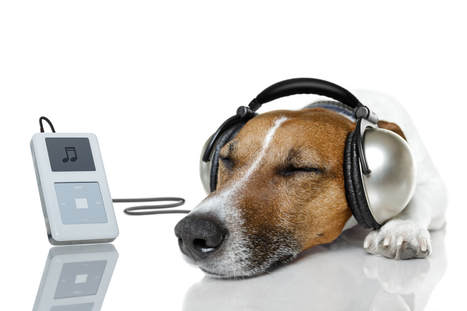

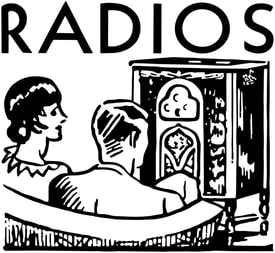
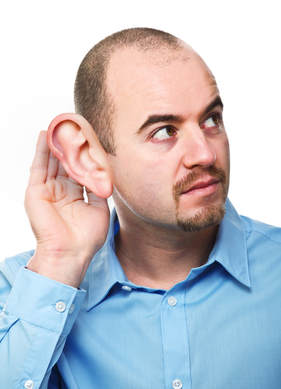

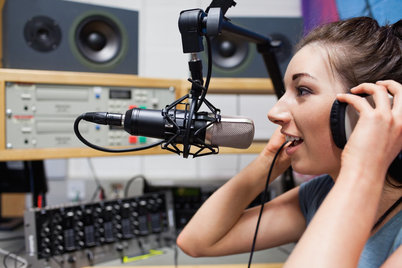
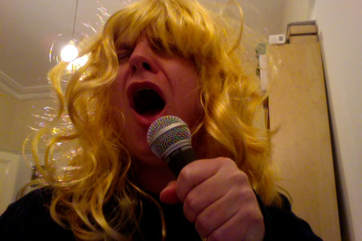
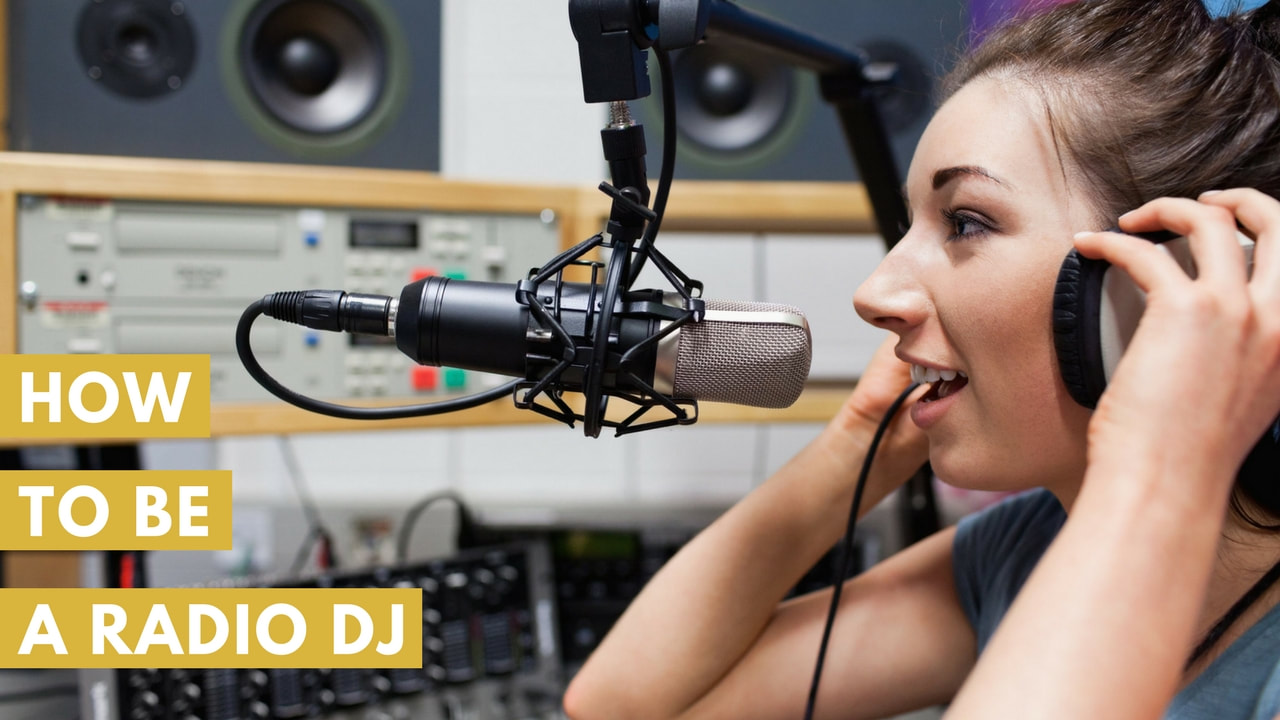
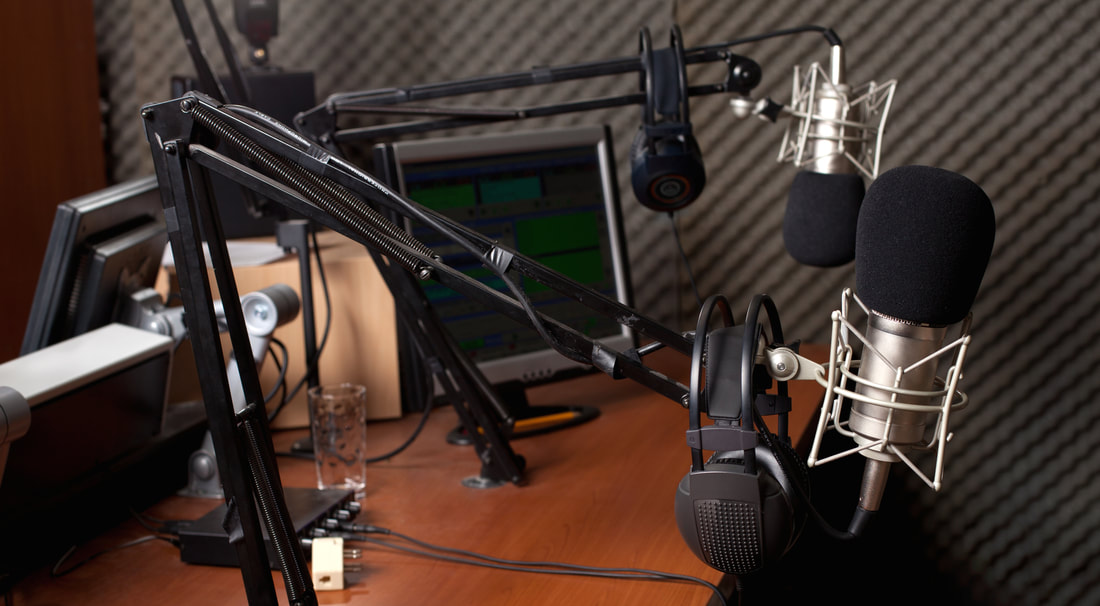
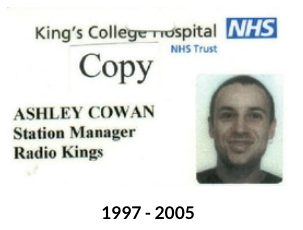
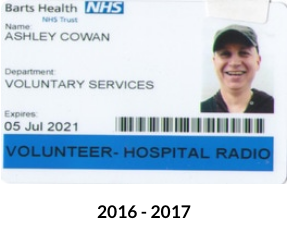
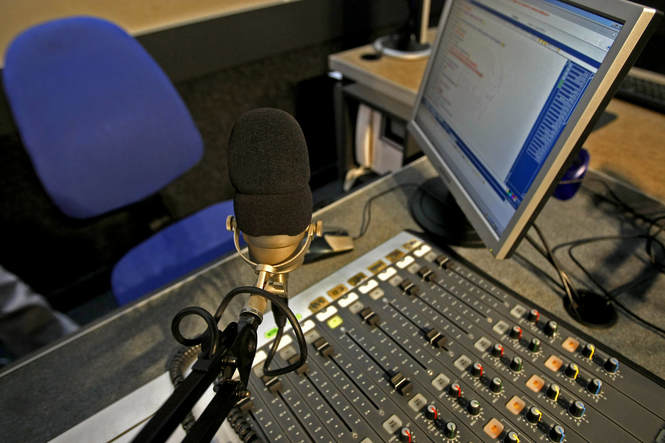
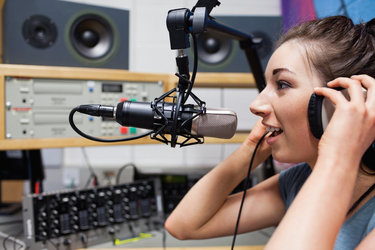
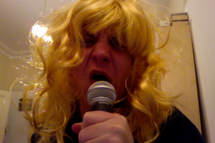
 RSS Feed
RSS Feed
